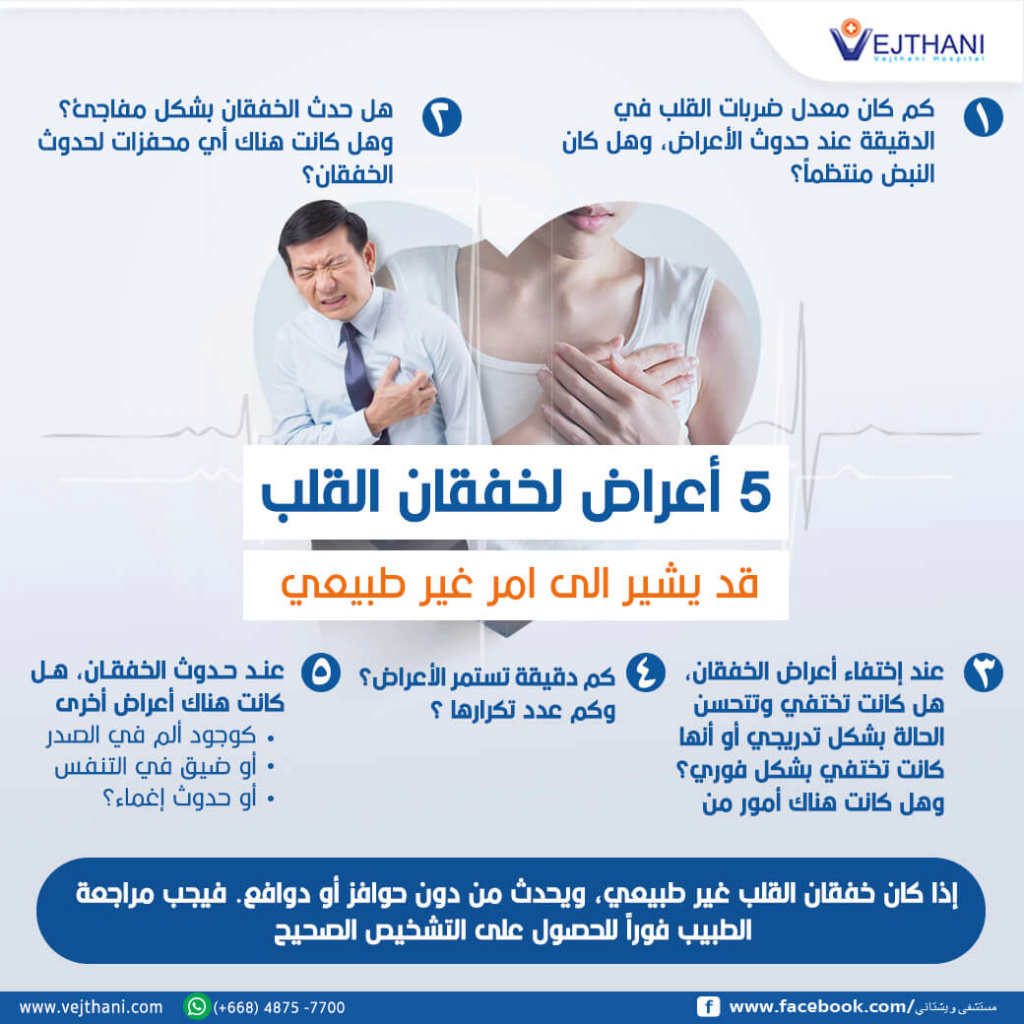6causes of heart palpitations

In the event that the heartbeat suddenly accelerates in a very noticeable way, or the pulse becomes irregular, then you must be very worried.
Don't worry, after a short while, the heartbeat will return to normal. Doctors call these occasional ectopic beats. However, if you experience chest pain or feel dizzy, go and get medical help right away.
What are the causes of heart palpitations? Here are the 6 most common reasons.
1-Palpitations associated with pregnancy, menstruation, or menopause
Pregnancy causes many hormonal changes in the body. Morning sickness is one of the most common side effects. But sometimes pregnancy also causes the heart to beat faster, and hormonal changes associated with menstruation and menopause also sometimes cause heart palpitations.
2-Side effects of some medicines

Sometimes, taking a prescribed medication can cause heart palpitations. Typical cases of heart palpitations associated with certain medications include:
Use an inhaler
Take antibiotics or antidepressants
Use of antifungal medications
3-Heart defects
Heart arrhythmias sometimes also cause palpitations, but there is a big difference between saying a person has a heart rhythm problem and being diagnosed with a heart problem. SVT is an excellent example of a common heart rhythm abnormality that can cause palpitations. It is not uncommon to find this condition in young adults, which does not mean that they are unhealthy.
4-Dehydration

Dehydration can lead to heart palpitations. Even in winter, make sure to drink enough fluids, but it is normal for the problem to worsen in summer and hot climates. Dehydration is the body's alarm signal when its vital systems are in danger of breaking down. The message is simple: Make sure you drink small drinks frequently to stay hydrated.
5-Fever
Elevated body temperature is another cause of heart palpitations. If your temperature is 38°C or higher, it can sometimes trigger a reaction in the heart and the palpitations should go away after a short while and are unlikely to increase in intensity. This problem should not recur after the fever has gone down. To increase reassurance, it is best to consult a doctor.
6-Sports effort

Exercise is usually healthy for the body, however, it is also possible that if you are under too much stress, it can lead to heart palpitations. This heart palpitations should not continue for a long time or be accompanied by other symptoms such as fainting or severe shortness of breath. Palpitations in this context are usually a harmless bodily reaction to physical stress, and soon everything is back to normal.
Source: websites

